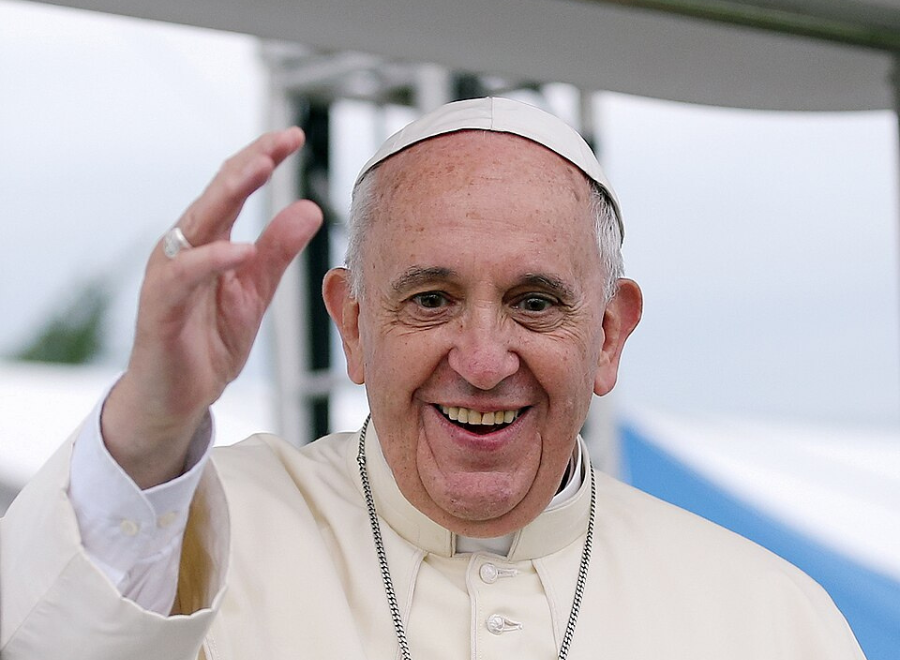At the very outset of the papacy of Jorge Mario Bergoglio, Pope Francis, he made clear the primacy he would accord the poor, the migrants, and the people at the bottom of economic and political structures. After all, it was a fellow Latin American prelate, Cardinal Claudio Hummes of Sāo Paulo, who embraced Bergoglio when he was elected pontiff in 2013 and inspired his papal name.
As the new pope told journalists a few days after his election, Hummes said to him, “‘Don’t forget the poor!’ And those words came to me: the poor, the poor. Then, right away, thinking of the poor, I thought of Francis of Assisi. Then I thought of all the wars.… Francis is also the man of peace. That is how the name came into my heart: Francis of Assisi. For me, he is the man of poverty, the man of peace, the man who loves and protects creation.… How I would like a Church which is poor and for the poor.”
You may unsubscribe from any of our newsletters at any time.
And so the Argentine Jesuit took the name of Francis, and his papacy has since consisted in great measure of bringing the vision of the 13th-century poor man from Assisi into the workings of a 21st-century church.
With his 2015 encyclical [papal letter] Laudato si’, Francis the contemporary pope joined forces with Francis the medieval friar in asserting that “we are not disconnected from the rest of creatures, but joined in a splendid universal communion.” He worked throughout his 12-year papacy to make this spiritual truth a global reality embedded in the consciousness of individuals, governments, corporations and religious institutions. He understood that an inadequate theology of the planet has fed a “techno-economic paradigm” that prizes consumerism over community and is ruthlessly dominant in every dimension of our lives.
We have gone the wrong way, and we have precious time to reverse course.
As an antidote to the current paradigm, Francis proposed an “integral ecology” that respects human dignity, recognizes the connectivity of all Creation, and is sensitive to the unique cultures and diverse systems that constitute the human family.
This ecology must be, as he wrote in Laudato si’, situated in the “common good, a central and unifying principle of social ethics.” The common good model emphasizes local communities, solidarity, social peace, the flourishing of the family as the “basic cell of society,” and distributive justice, or sharing the wealth.
For Francis, it all cohered: the common good is indispensable to an integral ecology, and the well-being of the poor is indispensable to the common good. We need to create a politics and economics of full inclusion to ensure environmental and societal flourishing.
More on Broadview:
The alternative is a calculated stalling of our collective futures, which are being compromised unto death by the rapacious greed of our political and corporate leaders.
Francis’s multivalent approach to the environment, to the ravages perpetrated against the marginalized, was more than a moral broadside by the successor of Peter. It was an effort to create, or better yet recapture, what Catholic theologian Johann Baptist Metz once termed a “mysticism of open eyes,” bearing witness to the suffering of the world.
Francis insisted in his writings and in his ministry that our time of crisis is also a time when we can advance a new humanism, create a new unity out of the havoc wrought by the cruel forces of economic and political domination. This new humanism will reshape the priorities of the planet for sustainable existence, foster an informed and engaged citizenry, and redeem our global destiny.
It is all connected.
No wonder that Prime Minister Mark Carney said, upon the death of Francis, that he was “the moral conscience of the world.”
Francis was Francis for our time.
***
Michael W. Higgins is the author of The Jesuit Disruptor: A Personal Portrait of Pope Francis. He lives in Guelph, Ont.













